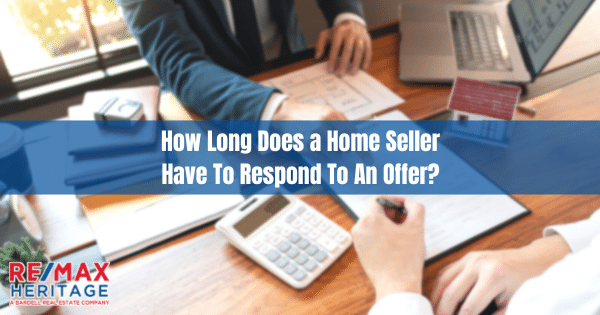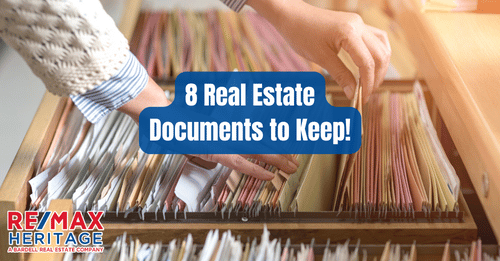Details To Not Miss When Buying a New Home
There are a variety of reasons many homebuyers prefer purchasing a brand-new home instead of an older home.
Some love the idea of moving into a home that’s never been lived in by anyone else. (Think of that crowd as the “new-car smell” aficionados of homeownership.) Others relish the opportunity to put their personal stamp on a home—tailoring the model, layout, and finishes to their particular tastes.
And then there’s the segment of buyers who are simply turned off by older homes that will likely require work and upkeep. They assume—rightly in most cases—that a newly built home will mean lower maintenance costs.
However, if you have your eye on a new home because you expect absolute perfection from Day One, think again. New-home buyers must be prepared for issues that might arise, according to John Heidenry, managing partner in Hoboken, NJ. He has been building luxury homes for nearly two decades.
New doesn’t equal perfection
Heidenry explains even new-construction homes present unforeseen issues a home inspection sometimes won’t catch. Remember: Every single thing in a brand-new home hasn’t yet been put to the test by daily usage.
Heidenry shared scary tales of high-end appliances (often convection ovens) that malfunctioned on the first use; water leaks that became apparent only after a first heavy storm; and scratched finishes that homeowners could not be certain they, their movers, or the builders may have caused.
Sarah Medina, seconds those sentiments. As a real estate professional who has sold new-construction homes—and as a homebuyer of a new build herself—she shared her own set of cautionary tales. Many of her horror stories involve clients who thought a home inspection wasn’t necessary for new-construction homes.
“It is!” Medina states emphatically.
“For starters, make sure everything is connected,” she urges. “I’ve received multiple phone calls from clients who bought in the dead of winter—and in the summer find the AC isn’t working. You don’t need an expert to see if a unit isn’t connected, but one definitely could have told you before you signed the closing paperwork.”
The same goes for appliances, plumbing, and heating—all the systems that make up the underpinnings of a sound home.
What does your warranty cover?
And as a new-construction buyer, Medina can’t emphasize enough the importance of thoroughly reading and understanding the builders’ warranty and knowing exactly what it covers.
“Many times it will cover nail pops and other very common cosmetic issues—but many times not,” she says.
Cosmetic details such as tile, paint, and trim deserve particular attention, adds Heidenry.
“Have any problems fixed before you close, as there can often be a disagreement down the line on whether the damage was caused by the client moving in or if it was preexisting,” he says. “It’s best to have everything 100% signed off on before the close, so there’s no question who is responsible for any damage.”
If you’re moving into a brand-new home, here’s a checklist of items our experts suggest you keep in mind.
1. Test all appliances
Your contractor and the professional installers who have been hired should be expected to install appliances to code. But they don’t put them to a real-use test.
Prepare yourself for potential issues.
“You wouldn’t believe how often we find that brand-new appliances do not work,” says Heidenry.
This is especially true in the kitchen, laundry room, and boiler room.
“Make sure the builder has turned the water on to the fridge/freezer for ice and water—and that the gas has been turned on for all of the gas-fired appliances, such as the stove, furnace, and dryer,” he says. “If there is a gas fireplace—check that, too.”
2. Don’t be alarmed
It is very likely that the furnace and oven will set off the fire alarms on their first use, warns Heidenry.
“They are coated in an oil that will burn off and trigger the smoke detectors,” he explains, adding that there’s no need to worry. “It’s really not a big deal. Just open the windows, and all will be well in several minutes.”
3. Watch the windows
Check to make sure all windows open and close properly.
“If they were installed off-plumb or off-level, they may not open or close correctly,” says Heidenry.
Also, check for any small cracks in the glass.
4. Peruse the paint
Examine the paint everywhere in the house. Last-minute repair jobs and touch-ups might have been completed, and you might not notice them until you’ve already moved in.
“Look from several angles and with the lights on and off,” Heidenry suggests.
5. Test the water temperature
Check that the water temperature is comfortable in all showers and tubs. Have the plumber adjust if necessary.
“The plumbing diverters may not let the water get hot enough,” Heidenry explains.
6. Eyeball the electrical
Are all the light switches straight? Off-kilter switch plates are common, Heidenry says. If they’re crooked, have the builder fix them before you close.
Also: “Make sure that your circuit breaker panel is labeled, so you’ll know which breaker is for what,” he adds.
7. Read up on the roof
Get a copy of the roof warranty. If the roof is going to leak, it will be after a first major storm, Heidenry says. But you should know what your warranty covers before a storm blows in.
Medina advises reading through all your warranties.
“The appliances and much of the subcontract work aren’t covered,” she says. “But your roof, foundation, framing, and finishings should be.”
8. Examine the elevator
If you’ve bought in a multifloor building, expect that the elevator may not line up with the floor the first time you use it. It’s nothing to be worried about.
“It’s actually not the weight of people that throws off the elevator,” Heidenry explains. “Because elevators are so computerized now, any little thing can put them out of service.”
Yours will need to be tweaked for everyday use, so anticipate a couple of months of adjustments before your elevator lines up smoothly, he says.
9. Focus on the finishes
Look for chipped tiles and scratched floors before you move in. Builders will rarely come back to fix those items, as they can be attributed to damage caused when moving in or homeowner use after final inspection, Heidenry says.
If you inspect ahead of time and damage appears after the fact, you’ll know to take it up with your mover’s insurance.
10. Hotfoot it across the floors
If a room has heated flooring, turn it on and make sure it works. This is another seasonal system that people forget about until the weather warrants its first use. Check it ahead of time to make sure it’s in working order.
11. Clock the cleaning
The builder should have your home professionally cleaned before the closing, but don’t leave that to chance. Make sure every room is clean, and open every cupboard and closet.
Come moving day, you’ll be fairly exhausted from organizing things; you won’t want to add one more thing to your to-do list.
12. Inspect the insurance
Finally, be sure to get a certificate of insurance from your moving company before moving day. Understand what it covers. Having already inspected everything yourself before closing, you’ll know that any damage prior to your first night in your new home will have happened during the move—and is hopefully covered by the mover’s insurance.






